Filter by
749 results found
-

NbSI director on UK political debate
For the first time ever, UK political parties took part in a debate on climate change in the runup to the December 2019 general election. The Conservative Party did not attend, but the remaining major political parties presented positive views and policies with respect to climate change. Prof Nathalie Seddon was one of three scientific […] -
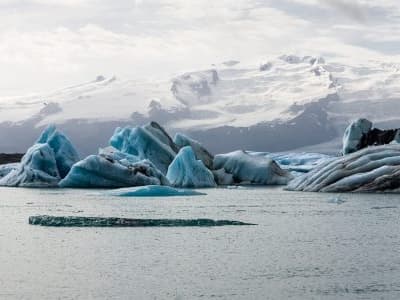
IPCC Special Report on the Ocean and Cryosphere in a Changing Climate
This latest IPCC report describes observed and projected impacts of climate change on our oceans, coastal zones, and cryosphere (polar and mountain ecosystems), and the human communities that rely on them. It reports widespread shrinking of ice sheets, glaciers, and reduction in snow cover, and the associated rise of global mean sea level. Such changes […] -

Climate Change and Land: An IPCC special report on climate change, desertification, land degradation, sustainable land management, food security, and greenhouse gas fluxes in terrestrial ecosystems
This IPCC report highlights the importance of our lands as both a source and a sink for GHGs. It estimates that around 23% of total GHG emissions are derived from the way we currently use land (agriculture, forestry, and other uses), while natural land processes absorb 29% of total CO2 emissions. The report assesses how […] -
Core principles for successfully implementing and upscaling Nature-based Solutions
Cohen-Shacham et al (2019) Environmental Science and Policy As NbS gain traction in environment and climate policy it is vital that the term is used and applied consistently. With the goal of improving the operational framework for NbS, this paper compares IUCN’s preliminary “NbS Principles” to those of five other ecosystembased concepts (the Ecosystem Approach, […] -
Impacts of Land-Based Greenhouse Gas Removal Options on Ecosystem Services and the United Nations Sustainable Development Goals
Smith et al (2019) Ann Revs Ecol System This study compares the impacts of five different options for land-based Greenhouse Gas Removal (GGR) on ecosystem services and their contribution to the Sustainable Development Goals (SDGs). It suggests universally positive effects of soil carbon sequestration and wetland restoration, whereas options such as bioenergy with carbon capture […] -
Mangroves shelter coastal economic activity from cyclones
Hochard et al (2019) Proc Natl Acad Sciences USA This study is the first to provide global evidence on the capacity of mangroves to buffer the economic activity of coastal communities during tropical storms. Drawing on data on nighttime luminosity across 2,000 tropical and sub-tropical communities from 23 countries, the study found that areas with […] -

NbSI Director at Scottish Biodiversity Conference
Nathalie talked about the fundamental importance of biodiversity for nature-based solutions at the Scottish Biodiversity Conference. Timely given growing investments in low diversity tree plantations in Scotland -

New York Declaration on Forests – Progress Report
Five years since the signing of the New York Declaration on Forests, progress in meeting targets is limited. Signatories committed to halving tropical deforestation and restoring 150 million hectares of degraded landscapes and forestlands by 2020. However, only 18% of the restoration goal has been achieved and in many parts of the world rates of […] -

Welcome two new team members
Welcome Isabel Key and Rosy Cousins. Issy is a natsci graduate and co-founder of Climate Science; Rosy recently completed a Masters thesis on trade-offs among the Sustainable Development Goals after working with IIED. -
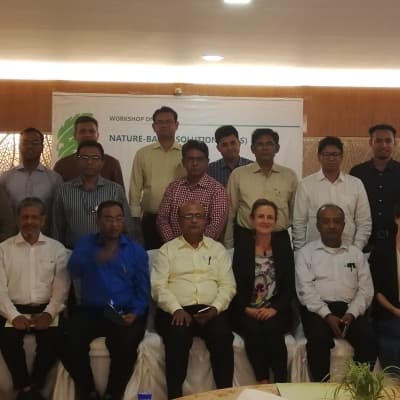
NbS Roadmap in Bangladesh
Together with the International Centre for Climate Change and Development, we ran an NBS workshop in Dhaka for practitioners and policymakers. Bangladesh has long-been implementing NBS. We discussed how this knowledge can best inform development policy and practice regionally and across globe. -

Investments Now Will Save us in the Future – New Report from the Global Commission on Adaptation
A new report by the Global Commission on Adaptation launched in September, reveals that investing $1.8 trillion globally in five thematic areas from 2020 to 2030 could generate at least four times the return on investment (i.e. $7.1 trillion in total net benefits). The areas considered are early warning systems, climate-resilient infrastructure, improved dryland agriculture, […] -

UN Climate Action Summit and Climate Action Week 23-29 September 2019
Billed as the most important event for international climate action since Paris 2015, the UN Climate Summit on the 23 September aimed to boost ambition and accelerate action towards implementing the 2015 Paris Agreement on Climate Change. Nature-based Solutions were the focus of the Climate Summit’s Action Plan 6. This action area called for a […] -

Enhancing climate ambition through NbS
On the basis of an analysis of comparative assessments of nature’s prominence in NDCs to date, our new report with IUCN highlights what can be done to fully harness the potential of NbS in global climate action. National commitments to NbS are also available via our NBS Policy Platform. -
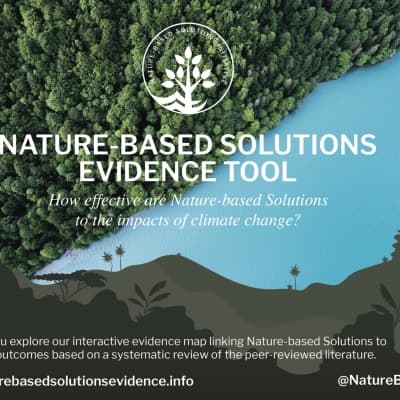
NBS Evidence Tool
During UN Climate Action week, we launched our interactive evidence platform linking nature-based interventions to adaptation outcomes. The platform will grow as studies are added. Please check it out and let us know what you think. -

Achieving net zero with green and grey solutions
NBSI director spoke with Carbon Brief at the Oxford Achieving Net Zero conference. She emphasised the need to balance Nature-based Solutions with tech to achieve net-zero, emphasising the vital importance of locally stewarded ecosystem restoration (and not afforestation!) -

Global recognition of Nature-based Solutions
Our new paper reveals global support for Nature-based Solutions to climate change but highlights the need for high-level pledges to be met by science-based targets that benefit both people and ecosystems. Non-technical summary Ecosystems across the globe are vulnerable to the effects of climate change, as are the communities that depend on them. However, ecosystems […] -
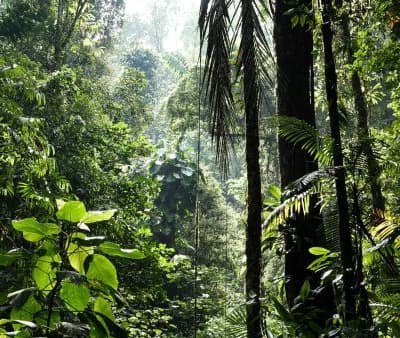
Biodiversity and climate change
NbSI Director talks about the crucial role of biodiversity as a major ally in the fight against climate change and poverty in a video as part of Apolitical’s field guide for public servants: Policy Solutions from Nature. -
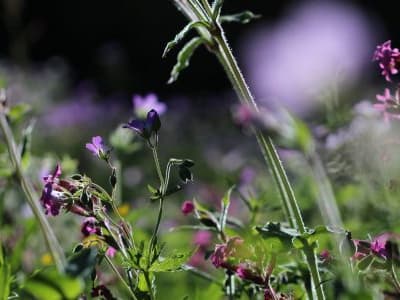
Nature for climate in New York
To celebrate and endorse nature’s role as a key part of the solution to climate change, Nature4Climate hosted a four-day programme of events from September 22nd to 25th after the UN Climate Summit in New York. We hosted three events and launched our interactive online NbS evidence tool. -
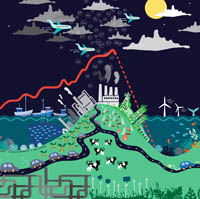
Art for net zero
We are proud to launch Cécile Girardin’s and Lisa Curtis’s net zero poster based on an inspiring talk by Christiana Figueres. Look out for the poster and join us for participatory art at our upcoming events in Oxford (Achieving Net Zero Conference) and New York (Nature’s Climate Hub). -

Welcome Nicole Chabaneix
We welcome our newest team member, Nicole Chabaneix. A biologist with six years of experience working on climate change and sustainable development research, policy and project management, Nicole has had key roles at WWF and the Ministry of Environment in her home country of Peru. -
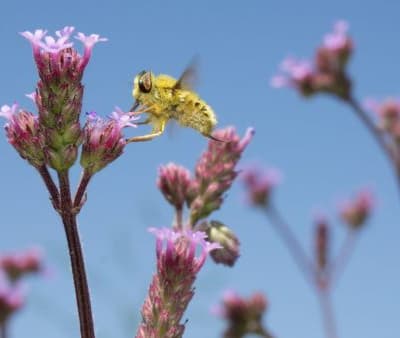
UN resolution passed calling for urgent action on peatlands
This March, a UN Resolution was passed that urges member states to conserve, sustainably manage, and restore their peatlands. This is a welcome development because peatlands are found in 180 countries, cover approximately 3% of the Earth’s land area, and provide habitats for diverse flora and fauna. Moreover, peatlands store vast amounts of soil carbon […] -
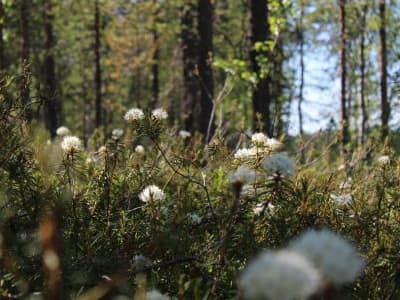
Nature-based Solutions highlighted in the IPBES Report
The much anticipated global assessment report on biodiversity and ecosystem services of the Intergovernmental Science-Policy Platform on Biodiversity and Ecosystem Services (IPBES) was launched on May 6th. The report paints a bleak picture. While our dependence on natural resources has grown dramatically, the capacity of nature to provide these resources is being severely diminished due […] -

United Nations Secretary General’s Climate Summit – NbS coalition
NbS are one of nine core themes for the upcoming UNSG Climate Summit. The NbS Coalition is being led by China and New Zealand, includes Costa Rica, Fiji, Norway, Portugal and Tajikistan, and is being supported by UN Environment, the CBD and coordinated by David Nabarro. The NbS coalition is calling for more systemic understanding […] -
Seven lessons for planning nature-based solutions in cities
Frantzeskaki (2019) Environmental Science and Policy Recent research on urban NbS tends to highlight the benefits of NbS, but not investigate implications for policy planning and governance. To address this gap, this paper analyses 15 urban experiments across 11 European cities that have implemented NbS projects and identifies lessons on how NbS may be chosen, […] -
Addressing societal challenges through Nature-Based Solutions: How can landscape planning and governance research contribute?
Alberts et al. (2019) Landscape and Urban Planning This paper explores how river landscape planning and governance research enhance understanding of the ways NbS can alleviate societal challenges. It also presents a conceptual framework for how planning and governance can help assess NbS effectiveness. NbS sometimes take more space and time than tech alternatives, require […]

